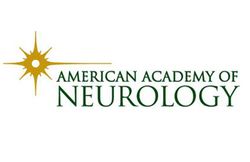 Every moment counts for brain diseases. The saying among medical experts is that “time is brain.” The earlier you receive treatment, the better. This week, a diverse team of researchers from the Perelman School of Medicine at the University of Pennsylvania is in New Orleans at the American Academy of Neurology’s 64th Annual Meeting, sharing the latest data aimed at enhancing the speed of diagnosis and treatment, and ultimately helping people with neurologic conditions.
Every moment counts for brain diseases. The saying among medical experts is that “time is brain.” The earlier you receive treatment, the better. This week, a diverse team of researchers from the Perelman School of Medicine at the University of Pennsylvania is in New Orleans at the American Academy of Neurology’s 64th Annual Meeting, sharing the latest data aimed at enhancing the speed of diagnosis and treatment, and ultimately helping people with neurologic conditions.
This morning, Michael Mullen, MD, a fellow in Neurology and Vascular Medicine, started the day with a presentation showing that the emergence of primary stroke centers certified by The Joint Commission has steadily improved the treatment of stroke patients. Previous studies, from collaborations between Penn’s Departments of Emergency Medicine and Neurology, have shown that nearly half of Americans live more than an hour away from primary stroke centers and do not have ready access to the specialized stroke care they need when blood supply to their brain has been cut off. The data presented today provides evidence supporting the efficacy and importance of primary stroke centers.
As the role of primary stroke centers becomes more apparent, policies regarding emergency response treatment to stroke care have started to shift. In Philadelphia, for instance, ambulances will soon bring stroke patients only to designated stroke centers, rather than the closest hospital. As such, designated Comprehensive Stroke Centers, like the one at the Hospital of the University of Pennsylvania (HUP), are working to treat people suffering from strokes at the Joint Commission-designated Primary Stroke Centers closest to their home. And through the Penn NeuroRescue program, we’re using telemedicine systems to bring expert consultations 24/7 to hospitals in distant locales, and transferring those who need surgery and/or specialized neurointensive critical care to HUP.
Ultimately, this organized approach to stroke care will, as this morning’s study showed, ensure that patients get the right care at the right time.
Timing is also crucial when a constellation of symptoms make a disease difficult to diagnose and the disease can be fatal if it goes untreated. Whether you’re suffering from a stroke, an intermittent condition like multiple sclerosis (MS), a degenerative condition like amyotrophic lateral sclerosis (ALS), or even a rare form of encephalitis.
Tomorrow morning, Maarten Titulaer, MD, PhD, clinical research fellow in Neuro-oncology and Immunology, will shed light on a recently discovered paraneoplastic condition, called Anti-NMDA Receptor Encephalitis, which can cause a cacophony of puzzling symptoms: psychiatric symptoms, memory issues, speech disorders, seizures, involuntary movements, even decreased levels of consciousness and breathing. In the “Contemporary Clinical Issues” plenary lecture here, he’ll present the first treatment guidelines for Anti-NMDA Receptor Encephalitis. Looking at the first 565 cases recorded of this disease, the team found that patients fared much better if treatment started within the first month. With appropriate treatment, almost 80 percent of patients improve and, with a recovery process that may take many months and years, can fully recover.
Even in diseases that slowly cause degeneration over months and years, timing is important. People with ALS, or Lou Gehrig’s disease, confront decisions throughout the course of their disease as they grapple with loss of function; trouble walking, moving, eating and swallowing; and as their breathing ability diminishes with the disease's progression. Yesterday, the Penn team presented research showing that ALS patients who waited until the last minute to receive a feeding tube - at a point where they were in an emergent, critically ill state - didn’t live long enough to experience the benefits.
"Timing is crucial for placement of feeding tubes in ALS patients," said the lead author of both studies, Amy Tsou, MD, MSc, a fellow in Neurology and a Robert Wood Johnson VA Clinical Scholar. "We've shown that waiting too long can be detrimental and happens too often. In general, it is important for clinicians and patients to proactively prepare and reevaluate treatment decisions as ALS patients enter into different phases of the disease.”
Brain diseases can strike quickly, wax and wane over time, or act slowly. Regardless of how they strike, the sooner things can be correctly diagnosed, and appropriate treatments can be selected, the better people can manage and hopefully retain quality of life. At a meeting like this - where all brain diseases are discussed concurrently - it’s easier to see the theme: when your brain is involved, time is precious and shouldn’t be taken for granted.